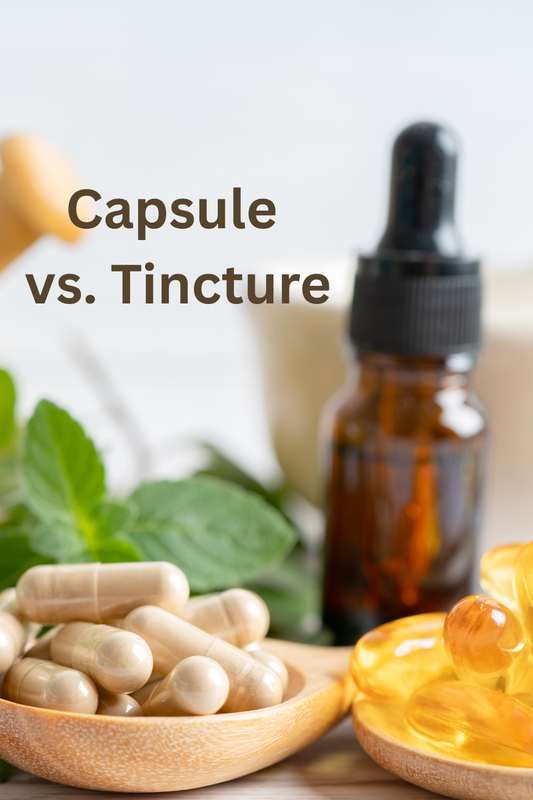Vitamin D and Fertility: 5 Ways It Supports Reproductive Health
Vitamin D plays an important role in fertility, hormone balance, and pregnancy outcomes. Whether you’re trying to conceive naturally or preparing for IVF, optimizing your vitamin D levels is a simple, actionable way to support reproductive health.
Here are five ways vitamin D affects fertility—and how to safely get more of it.
1. Hormonal Regulation: How Vitamin D Supports Ovulation
Vitamin D helps regulate key sex hormones involved in ovulation, egg development, and menstrual regularity. Low vitamin D levels are associated with disrupted hormone signaling and reduced ovarian function—especially in those with irregular cycles or PCOS
Reproductive Health, 2018.
When testing your vitamin D levels, aim for a minimum of 30 ng/mL. Many fertility specialists prefer to see levels closer to 50 ng/mL for optimal hormone support.
2. Vitamin D, Egg Quality, and Ovarian Reserve
While research is still evolving, studies have found that vitamin D may impact egg quality and mitochondrial function in the ovaries. This is one reason why most fertility clinics test vitamin D levels before starting IVF.
In cases of borderline or low results, many doctors recommend increasing supplementation from 1,000 IU to 2,000–3,000 IU per day, then retesting after a few months
Nutrients, 2020.
3. Vitamin D and Pregnancy Outcomes
Adequate vitamin D is associated with better pregnancy outcomes—including higher clinical pregnancy rates, reduced risk of miscarriage, and lower rates of complications like preeclampsia and gestational diabetes
British Medical Journal, 2013,
Nutrients, 2022.
In my own practice, I make sure patients have had their vitamin D levels checked within the past 3 months—especially those who are tired, have dietary restrictions, have been trying to conceive for more than 6 months, or have experienced pregnancy loss.
4. Why Vitamin D Matters for Overall Health
Vitamin D supports much more than fertility. It plays a key role in:
-
Bone health and calcium absorption
-
Immune system function
-
Glucose metabolism
-
Inflammation regulation
-
Healthy teeth and gums
If you’re feeling chronically tired, foggy, or achy, it may be worth checking your levels—even outside the fertility conversation.
5. How to Get More Vitamin D from the Sun
Sunlight is one of the most effective and natural ways to raise your vitamin D levels. When your bare skin is exposed to UVB rays, your body converts cholesterol into pre-vitamin D3, which is activated in the liver and kidneys before circulating in your bloodstream
Nutrients, 2018.
In spring and summer, just 8–10 minutes of direct sun exposure on bare skin (without sunscreen) can often meet your daily vitamin D needs. This may vary depending on skin tone, latitude, and time of day.
📚 References
-
Lerchbaum & Obermayer-Pietsch, Reproductive Health, 2018
-
Mansournia et al., Nutrients, 2022
-
Aghajafari et al., BMJ, 2013
-
Irani et al., Nutrients, 2020
-
Wacker & Holick, Nutrients, 2013
Vitamin D is thought to affect fertility in different ways:
1. Hormonal Regulation: Vitamin D is involved in the regulation of hormones that are crucial for ovarian function, including those involved in the development and maturation of eggs. Adequate levels of Vitamin D can help maintain a healthy hormonal balance, which is essential for producing high-quality eggs. When testing for Vitamin D in your blood you'll want the level to be a minimum of 30ng/mL(which is associated with higher pregnancy rates) though some fertility doctors prefer it to be closer to 50ng/mL.
2. Eqq Quality and Ovarian Reserve: There is currently limited research on how Vit D levels affect egg quality specifically. That said, it is routine before patients start IVF to have their Vitamin D levels checked to make sure they are not deficient. It's also such an easy thing to fix for patients if they are borderline by increasing their D intake from 1000 IUI to 2000-3000 IUI daily, then retest a few months later.
3. Vitamin D is more closely linked with pregnancy outcome: Women with adequate levels of Vitamin D have higher clinical pregnancy rates. They also have fewer poor maternal outcomes like pre-eclampsia and gestational diabetes. In practice I always make sure my patients D levels have been checked within the last three months. I find this to be especially important in those patients who are always tired, have dietary restrictions, those who have been trying to conceive for more than 6 months, and patients who have experienced miscarriage.
3. How is Vitamin D good for you in general?
To name a few, Vitamin D helps you have good energy and strong bones. It helps regulate your immune system, glucose metabolism and reduces inflammation. Vitamin D plays a role in healthy teeth and gums.
4. How does sunshine work with Vitamin D?
Your bare skin will absorb UV B radiation and converts it into previtamin D3 which turns it into D3. From here it is absorbed by the liver and the kidney and then circulated into your blood. For a more detailed description of the process click here.
5. How much sun exposure is recommended to get Vitamin D?
In the warmer months, spring and summer, if you get 8-10 minutes of direct sun exposure on your bare skin (no sunscreen) this should be enough.




